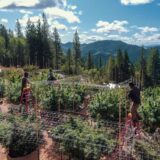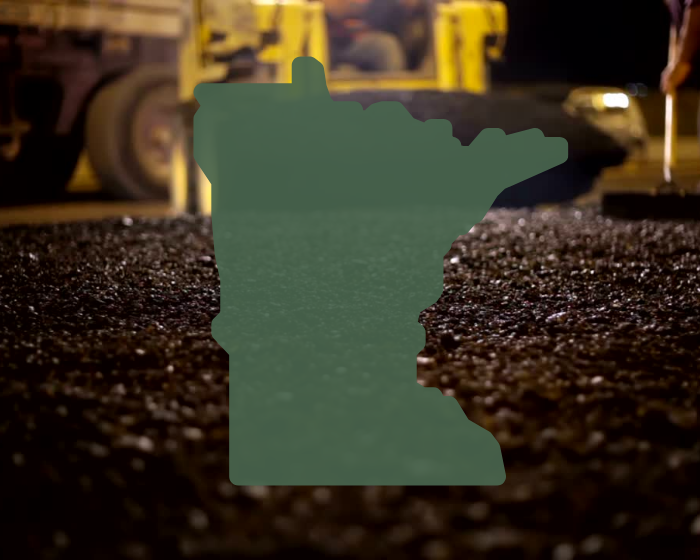There’s a 30-ton, little-known problem with roadwork on Minnesota’s state highways. The tools road crews use to control erosion and keep sediment from running into local waterways are often made of single-use plastic.
To stop an estimated 125,000 tons of sediment from washing into waterways every year, the Minnesota Department of Transportation (MnDOT) uses 30 tons of plastic in items like erosion control blankets and sediment control logs.
Most of that plastic ends up in the landfill. But some is unintentionally left behind on the land where it degrades into microplastic, tiny particles that get into land and water, and have now been found in human blood and lungs.
Right now, there aren’t any alternatives. But MnDOT, under a sustainability mandate, is prototyping products that can be made from biodegradable materials.
Enter hemp.
MnDOT teamed up with the Agricultural Utilization Research Institute (AURI) to develop erosion control tools made from regional crops. The project is also getting technical support from the Minnesota Department of Agriculture and Minnesota Department of Natural Resources.
Through the project these agencies hope to:
- Eliminate a significant source of microplastics in soil and water by replacing single use plastic materials with locally grown biodegradable products
- Demonstrate that biodegradable erosion and sediment controls can meet or exceed performance of plastic-based products
- Increase demand for hemp, an eco-friendly crop to grow with significant contributions to carbon sequestration and water quality
“This is something that’s been kind of behind the scenes for about two, two and half years now” said the manager of the Minnesota Department of Agriculture’s hemp program, Tony Cortilet, at the 2022 Industrial Hemp Forum in February. “It came to reality last summer when it was approved for funding.”
Money for the research is coming from revenue generated by the Minnesota State Lottery: the Environment and Natural Resources Trust Fund.
About now months into the three-year project, the research team has been testing different hemp varieties and processing methods, seeing which will make the best material for erosion-control blankets, hydraulic mulch, sediment-control logs, and silt fences. (Hydro mulch is largely wood fiber, but has binders that aren’t necessarily biodegradable. Silt fences use poly plastic.)
“It’s in the beginning stages but we’ve had some pretty good progress on it,” said Riley Gordon, an engineer with AURI, during his presentation at the Industrial Hemp Forum.
Once processing methods have been explored the group will make prototypes, focusing on the fill of the material.
They’ll also look at replacing jute yarn and coconut yarn for netting. These are already biodegradable, but made of imported materials. The research group is currently testing yarns made from regional materials, including one made of hemp and wool, to see if they can match the tensile strength and useful life of jute and coconut yarns.
Once prototypes are created, MnDOT will put them to use to see how they perform. And when they’ve developed tools that can meet or exceed the performance of the existing plastic-based versions, the agency can create specifications for manufacturers to begin large-scale production.
The result will be cleaner, greener roadwork in Minnesota — and beyond. Other states’ transportation departments, facing similar demands and circumstances, will likely adopt these innovations. And once state departments of transportation have established biodegradable product lines, local governments and privately owned roadwork companies are likely to follow suit.
It’s a win for the earth, and for hemp farmers too.




















